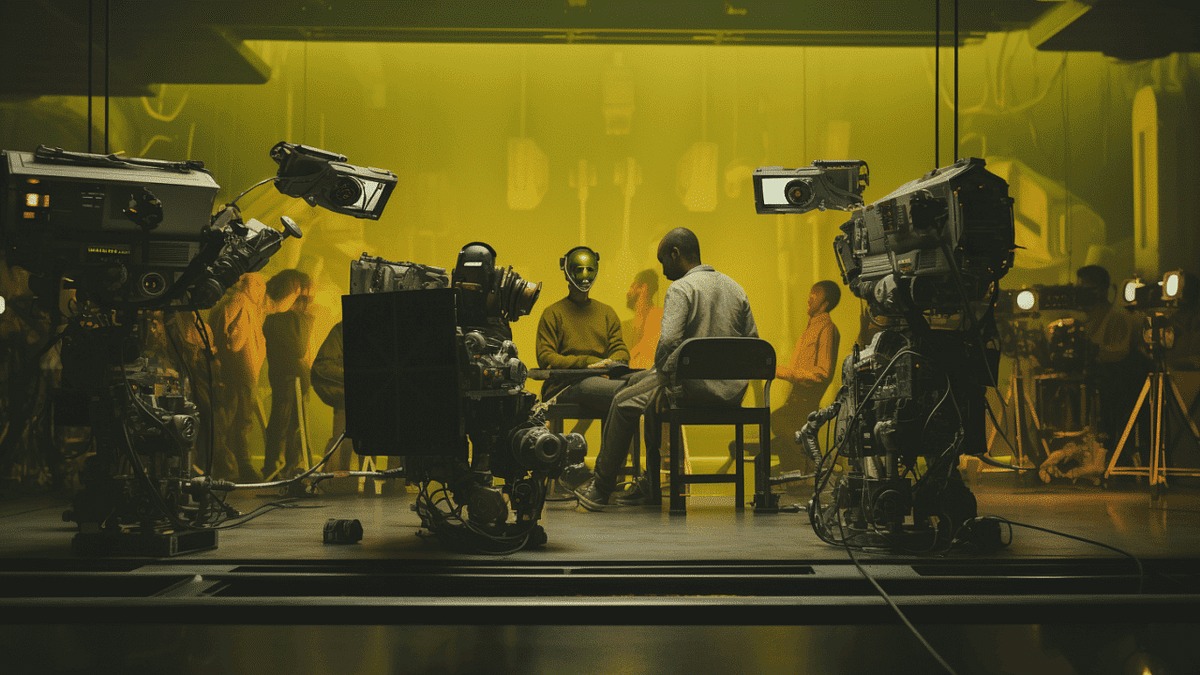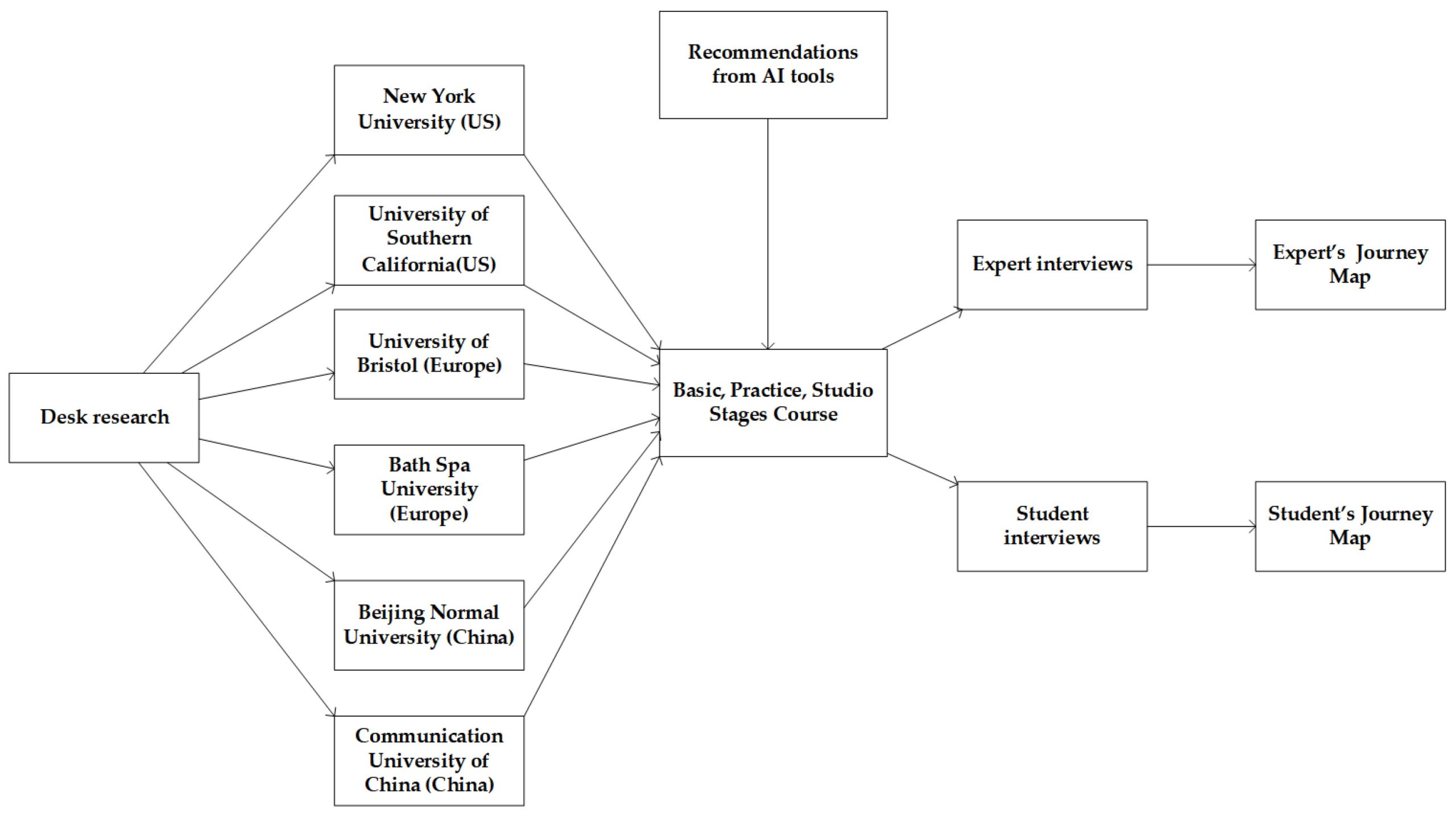Artificial intelligence is steadily transforming many creative professions, and filmmaking is not left out of this wave of innovation. From how scripts are written to how scenes are produced and edited, the industry is witnessing fresh approaches that were once thought to be exclusive to human talent.
What used to take days of effort can now be done within minutes with the aid of machine learning tools. Some filmmakers see this change as an opportunity to improve their workflow and save time, while others are raising questions about the role of human creativity in this new phase.
Though cinema has always evolved with new technology, what is happening now presents something quite different from traditional technical upgrades. AI is not just supporting the process behind the camera; it is now becoming part of creative decision-making.

Behind-the-scenes editing now runs faster thanks to intelligent software upgrades (Photo: Alamy)
Film professionals, from screenwriters to VFX artists, are using these tools to carry out tasks that once required large teams or long hours of manual work. This new reality is creating discussions about what it means to be an artist in today’s film industry.
Writing and Concept Development
Many creators now turn to artificial intelligence when coming up with ideas or building storylines. Screenwriters use tools that assist with dialogue creation, plot structure, and even character development.
Instead of starting from a blank page, they now have digital assistants that help generate story arcs and themes. These tools work based on past films, audience preferences, and current trends, giving writers something to build on faster than before.
This change has made it easier for independent writers or smaller studios to work at a pace that can compete with big-budget projects. AI can quickly suggest revisions or identify weak points in a script.
For those working under pressure, it offers a chance to keep up without sacrificing quality. However, this assistance is also drawing criticism from those who feel that computer-generated input could lead to storytelling that lacks emotional depth or originality.
Visual Effects and Editing Improvements
Another area where artificial intelligence has made strong progress is in visual effects and post-production. High-level video editing software can now detect and correct flaws in frames, adjust lighting, or create smooth transitions with little effort from the editor.
In the past, it took weeks to perfect certain scenes, but now, adjustments that used to require multiple technicians can be done automatically by machines.
Some AI programs can even generate realistic backgrounds or fill in visual gaps without needing to shoot new footage. For filmmakers with limited resources, this makes it easier to produce scenes that look expensive, even on a modest budget.
These developments help reduce production delays and cut down on cost, especially for genres like science fiction or fantasy that rely heavily on computer-generated environments.
Casting and Voice Performance Technology
Artificial intelligence has also started affecting casting and voice performance. Some studios use deep learning tools to de-age actors or bring back faces from previous generations using digital modeling.
Voice cloning technology now allows actors’ voices to be reproduced for scenes they did not actually record. These capabilities give directors the flexibility to experiment with creative ideas that were not possible in the past.
At the same time, these methods raise new concerns around identity, consent, and ownership. Using the face or voice of someone who is no longer alive, or digitally recreating a performer without their full involvement, creates ethical questions that many professionals are still debating. While the technology is impressive, it has opened a conversation about the responsibilities that come with its use in film.
Personalised Content and Marketing
Artificial intelligence is also playing a big role in how films are marketed and even in how certain scenes are tailored for specific groups. Streaming platforms now use AI to decide what kind of promotional material a user sees, and which version of a film might appeal more based on their previous watching habits.
This allows production houses to release one movie in different versions, adjusted subtly to suit different regions or preferences. This approach also applies to trailers, where AI can assemble different versions that focus on romance, action, or suspense, depending on the audience being targeted.
These changes are making film promotion more data-driven and effective. Although this may improve reach and sales, it also sparks a conversation on whether personalisation takes away the shared experience cinema has always offered.
Training and Skill Development
There is also growing interest in using artificial intelligence to train upcoming filmmakers. Educational institutions and workshops are starting to rely on AI-based platforms that simulate directing, editing, or scene composition.

Storytelling enters a new chapter with digital tools guiding creative flow (Photo: Getty Images)
These platforms provide instant feedback and performance analysis, helping students learn faster. Unlike traditional settings where training may take years, these tools help learners practise and correct errors on the spot.
Aspiring professionals who may not have access to expensive film schools are now able to build their skills using such programs. They can understand the technical parts of filmmaking more easily and gain exposure to industry practices from early stages. Though helpful, some educators caution that over-reliance on machines might weaken the ability to think creatively without digital support.
Concerns About Job Security and Originality
As with any strong change in industry tools, people working in filmmaking have started raising concerns about their future roles. Editors, animators, writers, and even some actors worry about being replaced or having their work reduced to computer instructions. When machines can perform many steps that used to require skilled hands, the value of human effort is put under pressure.
There are also worries about the sameness that may arise when AI is used too frequently. Since most of these tools work based on existing data and trends, there is a chance that fresh and unusual ideas may become less common. The creativity that often comes from unique experiences might be difficult for machines to understand or replicate with accuracy.
Regulations and Future Possibilities
While filmmakers continue to test what is possible with these tools, legal and industry bodies are still working on setting proper guidelines. Issues around intellectual property, digital likeness, and proper credit are now more urgent than before. Some unions and associations are calling for clear rules that protect workers and ensure fairness when AI plays a large part in production.
Looking ahead, it appears that artificial intelligence will remain a major part of filmmaking. The question is no longer whether it will stay, but how professionals will adjust to its presence.
As new uses continue to be discovered, people in the industry will need to find a balance between using digital help and preserving the heart and emotion that make film such a powerful medium.
By reshaping the way films are made, shared, and experienced, artificial intelligence has opened new directions for storytellers and audiences alike. From idea creation to production and marketing, nearly every part of the process is being touched by machine learning tools.
While the benefits are clear, it is also a time for careful thought, especially as the industry works to keep human imagination at the centre of cinema.
























